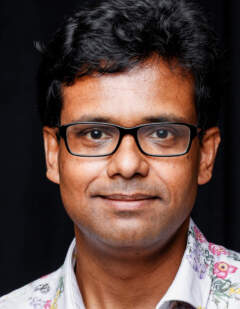FutureBioCity
Strengthening tree species diversity and structural diversity of urban and suburban forests for better public health
Urban and suburban forests are threatened by the impacts of climate change, disease and urban growth. However, they are essential for human well-being and public health and promote greater socio-ecological resilience. By measuring brain activity in the prefrontal cortex in humans, it is possible to investigate how emotions change when perceiving nature.
Against this background, project FutureBioCity aims to bring together current findings from forest sciences, medical research, and allergology in an interdisciplinary approach to investigate whether tree species diversity can improve public health and human well-being in cities.
A preliminary study will be carried out in the first funding phase. This will examine the perception of urban and suburban forests by citizens and stakeholders for different species-rich designs. In addition to measuring brain activity, influencing factors such as air temperature will also be included. In addition, an open access online database for plants in Germany that can trigger allergic reactions is to be developed. The second phase of the project will investigate what urban and suburban forests of the future and the supporting infrastructure could look like. The aim is to involve citizens and interest groups in the planning of urban and suburban forests.

